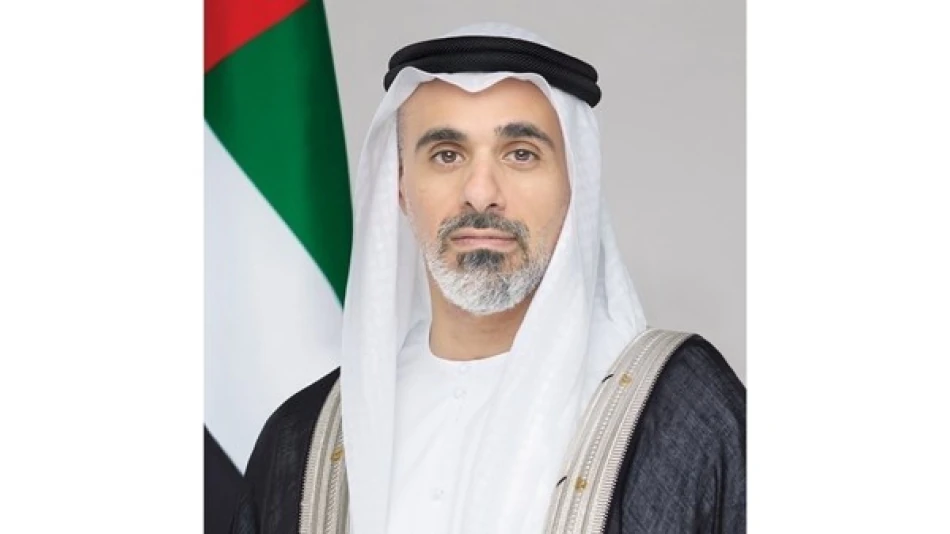
Khalid bin Mohammed bin Zayed's Pledge to Renew Loyalty and Commitment to UAE's National Progress
UAE Crown Prince Reaffirms Federal Unity as Nation Eyes Future Leadership Role
Sheikh Khaled bin Mohamed bin Zayed Al Nahyan, Crown Prince of Abu Dhabi, has delivered a powerful statement on Federal Allegiance Day, emphasizing the UAE's unwavering commitment to unity while positioning the nation for continued global leadership. His remarks underscore how the Emirates leverages its founding principles of solidarity to drive modern achievements across multiple sectors.
A Strategic Message of Continuity and Progress
The Crown Prince's address on Federal Allegiance Day represents more than ceremonial rhetoric—it signals the UAE's strategic approach to balancing tradition with rapid modernization. By invoking the legacy of Sheikh Zayed bin Sultan Al Nahyan, the nation's founding father, Sheikh Khaled reinforced the institutional stability that has become the UAE's trademark in an often volatile region.
"We recall with appreciation and loyalty the tremendous efforts made by the late Sheikh Zayed bin Sultan Al Nahyan and his fellow rulers, who planted the seeds of unity in the UAE's soil and established the foundations of a nation that pulses with dignity and giving," the Crown Prince stated.
The Economic Implications of Political Stability
This emphasis on unity carries significant weight for international investors and business leaders. The UAE's political stability, anchored in federal cohesion, has been instrumental in attracting over $20 billion in foreign direct investment annually and establishing the country as a regional hub for multinational corporations.
Competitive Positioning Against Regional Rivals
While Saudi Arabia pursues its Vision 2030 transformation and Qatar leverages its energy wealth for diversification, the UAE's federal structure provides unique advantages. The seamless coordination between emirates—from Dubai's commercial prowess to Abu Dhabi's energy resources—creates synergies that single-city states like Singapore achieve through different mechanisms.
Human-Centered Development as Strategic Advantage
Sheikh Khaled's emphasis on making "humans the center of development" reflects the UAE's calculated investment in human capital. This approach has yielded measurable results: the country ranks among the top 20 globally in the UN Human Development Index and leads the Arab world in innovation metrics.
The Crown Prince noted that the nation takes pride in "the qualitative achievements and global leadership in various fields, thanks to the vision of our wise leadership." This statement comes as the UAE prepares to host COP28 and continues expanding its space program, renewable energy initiatives, and artificial intelligence capabilities.
Future Implications for Regional Leadership
The timing of these remarks suggests the UAE is positioning itself for an expanded regional role as global powers reassess their Middle East strategies. The country's federal model, rare in the Arab world, offers stability that neighboring nations struggling with centralization challenges may find increasingly attractive.
Sheikh Khaled's commitment to "preserve this heritage and continue building on its solid foundations" indicates continuity in policies that have made the UAE a preferred destination for international business, tourism, and diplomatic engagement.
The Next Generation's Vision
As Crown Prince, Sheikh Khaled's statements carry particular weight for succession planning and long-term strategic direction. His emphasis on maintaining the founding principles while driving innovation suggests the UAE will continue its pragmatic approach to governance—balancing traditional values with progressive policies that have distinguished it from regional competitors.
The message reinforces that the UAE's federal structure, far from being merely historical, remains central to its future ambitions as a global hub for commerce, technology, and diplomacy.
Most Viewed News

 Layla Al Mansoori
Layla Al Mansoori






